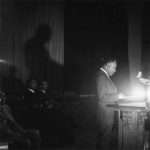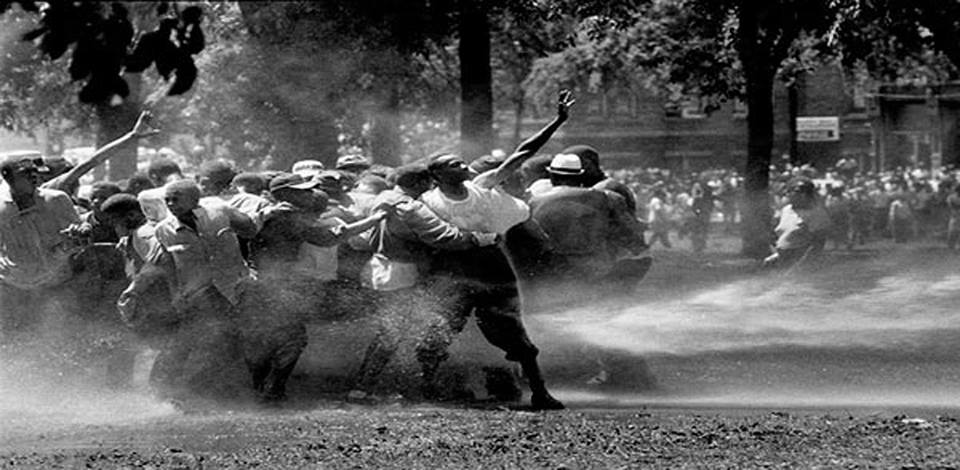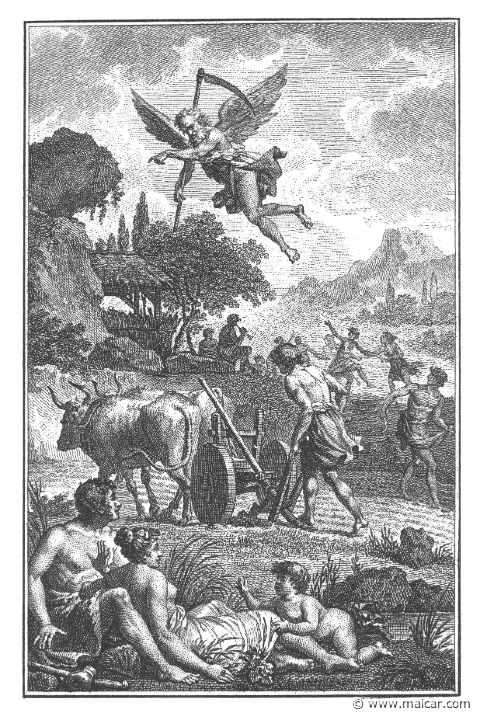Tuskegee Civic Association tapes bring back never-before-released 1957 speeches by Dr. King, Abernathy, Shuttlesworth, K.L. Buford and others
I’ve spent the last month working an internship in the Tuskegee University archives, mostly on an audio digitization project. We are working our way through a hoard of amazing reel-to-reel tapes from the history of the Institute and the local Freedom Movement in Tuskegee. Last week, I’m proud to say, we made our first major release: never-before-published audio recordings of historic 1957 and 1959 mass meetings of the Tuskegee Civic Association during the Tuskegee Boycott/Crusade for Citizenship, and a 1966 appearance by Muhammad Ali and Minister John Shabazz on the Tuskegee Institute campus. In the first of these recordings, you can hear newly released speeches by K. L. Buford, Fred Shuttlesworth, Ralph David Abernathy, and Martin Luther King Jr. at a critical moment in the Alabama Movement, which have not been heard again since they were first made 60 years ago:
Shared Article from Tuskegee University Archives
TCA #2 [July 2, 1957]: K.L. Buford, Fred Shuttlesworth, Ralph Da…
This audio recording preserves a historic July 2, 1957 mass meeting called by the Tuskegee Civic Association (TCA) in the second month of the Tuskegee…
archive.tuskegee.edu
This audio recording preserves a historic July 2, 1957 mass meeting called by the Tuskegee Civic Association (TCA) in the second month of the Tuskegee Boycott and Crusade for Citizenship. The main program includes a message from K. L. Buford, a local minister and activist in Tuskegee, and speeches of support by Fred Shuttlesworth, Ralph David Abernathy, and Dr. Martin Luther King, Jr. Devotions are delivered by E.G. Braxter, reports and remarks by C.G. Gomillion, President of the TCA, and the Financial Appeal by S. T. Martin. TCA called a mass meeting in response to Senate Bill 291, a bill sponsored by Macon County state senator and White Citizens’ Council leader Sam Engelhardt. SB 291 dramatically redrew the Tuskegee city limits, in order to gerrymander all but 5 registered black voters out of the city. At the moment of crisis, these historic speeches urged the community to “get in it,” and called for endurance and unity in the struggles to overturn SB 291 and to end second-class citizenship in Macon County. [press announcement]
For a timeline overview of the first two years of the Tuskegee Crusade for Citizenship by Institute historian and Tuskegee civil rights activist Frank J. Toland, and a passionate speech in support of the movement by the Jackie Robinson (yeah, that Jackie Robinson), see our recording from TCA Meeting #103 (June 23, 1959).
For our TCA Meetings, Speeches and Materials Collection, which will be growing as we continue to digitize the hundreds of meeting tapes in our archives, see the archives TCA Collection webpage.
Here’s our full press announcement.
Shared Article from Tuskegee University
Tuskegee University Archives release historic audio recordings o…
In honor of Black History Month, the Tuskegee University Libraries are pleased to announce the following digitized audio files which will be made avai…
tuskegee.edu



